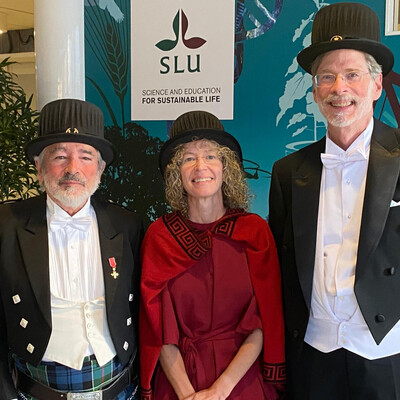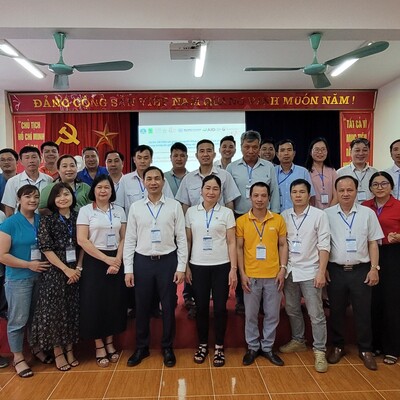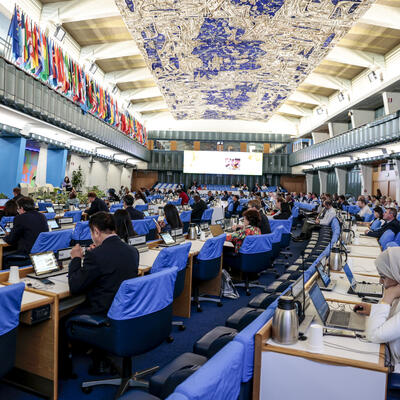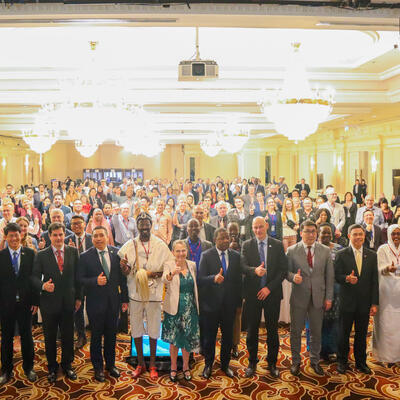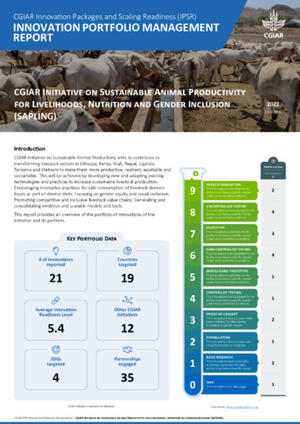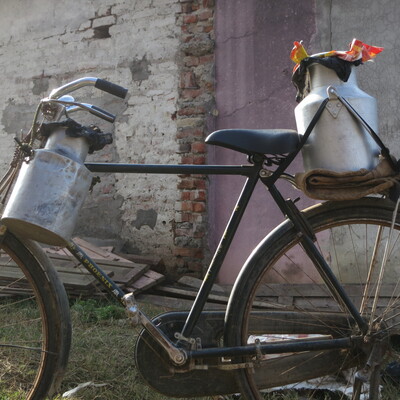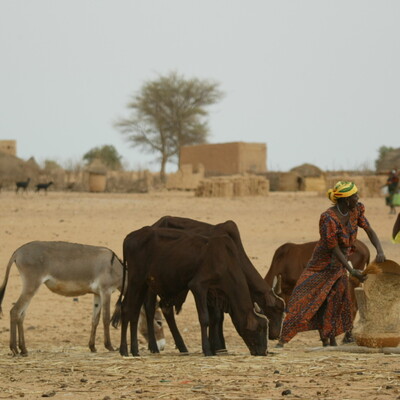
Don’t believe the scare stories, Kenyan milk is a big success
We sent the following note to Parents Africa magazine, which published an unfortunately alarmist article recently based on research conducted by ILRI scientists.

Village-based dairy advisor Lillian Ochieng cleaning her cow’s udder in preparation for milking in Siaya County (Photo credit: FIPS/Raymond Jumah)
A recent article in Parents Africa magazine reaches some unduly alarming conclusions about the milk sold in Nairobi—and attributes them to research published by scientists here at the International Livestock Research Institute (ILRI). Scientific journals can be difficult to interpret. That’s why we wish the author had contacted us before publishing her article, and why we continue to extend an invitation to her and to other journalists to check with us before publishing articles about our work.
Based on a misreading of our research, the article claims that Nairobi milk may contain carcinogenic levels of aflatoxin. In fact, there is no agreement on the acceptable level of aflatoxin in milk. For example, although nearly half the samples in our study were outside the EU limits, nearly all were within the USA limits. Aflatoxins are at the levels we have found in Kenyan milk are not especially concerning in terms of their known impact on human health. Risk assessments show that, in Kenya, the risk of aflatoxin in milk to human health is negligible.
In fact, many commonly eaten foods contain small amounts of carcinogens: coffee, processed meat, nyama choma, beer. However, the risk is small and most people are happy to eat these foods. It is unlikely they will personally suffer as a result. There is no such thing as zero risk or a completely safe food.
There are, however, several things that parents can do to protect their children from food-borne diseases. While aflatoxins are not especially concerning, all raw animal products have some risk of containing things that can harm health, such as campylobacter bacteria, which can cause sometimes severe gastrointestinal disease. We recommend that parents boil their milk before consuming it, as well as cook their meat properly and reduce contact between raw meat and other foods.
Kenya’s dairy and poultry sectors are great success stories; they provide livelihoods to hundreds of thousands of farmers and traders and have contributed enormously to the health and well-being of children country-wide. Milk and meat help children grow tall and have good brain development. Avoiding them would have many bad health effects.
We continue to do our part to monitor food safety here in Kenya and are actively working on research projects to make the food safer together with other partners.
For more information about ILRI’s work on the dairy sector in Kenya, and specifically on aflatoxin in milk, see ‘Occurrence of aflatoxin M1 in raw milk traded in peri-urban Nairobi, and the effect of boiling and fermentation,’ by Kuboka, M.M., et al; Aflatoxin M1 levels in different marketed milk products in Nairobi, Kenya, by Johanna Frida Lindahl et al; and Measuring and mitigating the risk of mycotoxins in maize and dairy products for poor consumers in Kenya, by Johanna Frida Lindahl.






